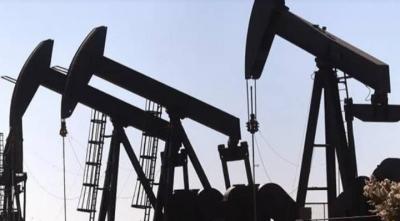Oil prices fell to their lowest levels in three weeks on Friday during a volatile session, following strong U.S. jobs data that heightened concerns about rising interest rates, while investors sought more clarity on the upcoming European Union ban on Russian refined products. Brent crude futures dropped by $2.23, or 2.7%, settling at $79.94 per barrel after reaching a session high of $84.20. The lowest point during the session was $79.72, marking the lowest level since January 11, according to Reuters. West Texas Intermediate (WTI) crude closed down $2.49, or 3.3%, at $73.39, moving within a range of $78 to $73.13, also the lowest since January 5. Brent crude recorded a decline of 7.8% this week, while WTI fell by 7.9%.
U.S. job growth surged in January amid continued strength in the labor market, yet it is expected that a slowdown in wage growth may provide the Federal Reserve some breathing room in its battle to curb inflation. Phil Flynn, an analyst at Price Futures Group, stated, "The market cannot decide whether they should be concerned about a recession or more worried that the Fed will be aggressive regarding interest rates." Meanwhile, investors are looking for more clarity on the impending EU ban on Russian refined products.
On another note, the Kremlin has warned that the European ban on Russian oil products will lead to further imbalances in global markets, indicating it will take measures in response to the EU ban. In response to a question regarding Moscow's stance on the EU's ban on Russian oil products, Kremlin spokesperson Dmitry Peskov told reporters, "This will, of course, lead to further imbalance in global energy markets." Peskov added, "We view this (ban) negatively; we have already talked about this... but it is natural for us to take measures to protect our interests against the risks that arise in this regard," according to the Russian news agency RIA Novosti. He noted that Russia is taking steps to defend its national interests, stating, "It is natural for us to take actions to protect our interests against the risks that arise in this regard."
Regarding the sanctions on Russian oil, Western sanctions on Russian oil came into effect on December 5, 2022, when the EU stopped purchasing Russian oil via sea. Similar measures on Russian oil products will take effect on February 5. The G7 countries, Australia, and the EU imposed a cap on the price of Russian oil at $60 per barrel. The transport or provision of insurance services for shipments priced above this level has been banned. In response, Moscow has reacted to the price cap by prohibiting oil supplies to entities whose contracts directly or indirectly stipulate the use of price-setting mechanisms, which began to be implemented in February 2023.




